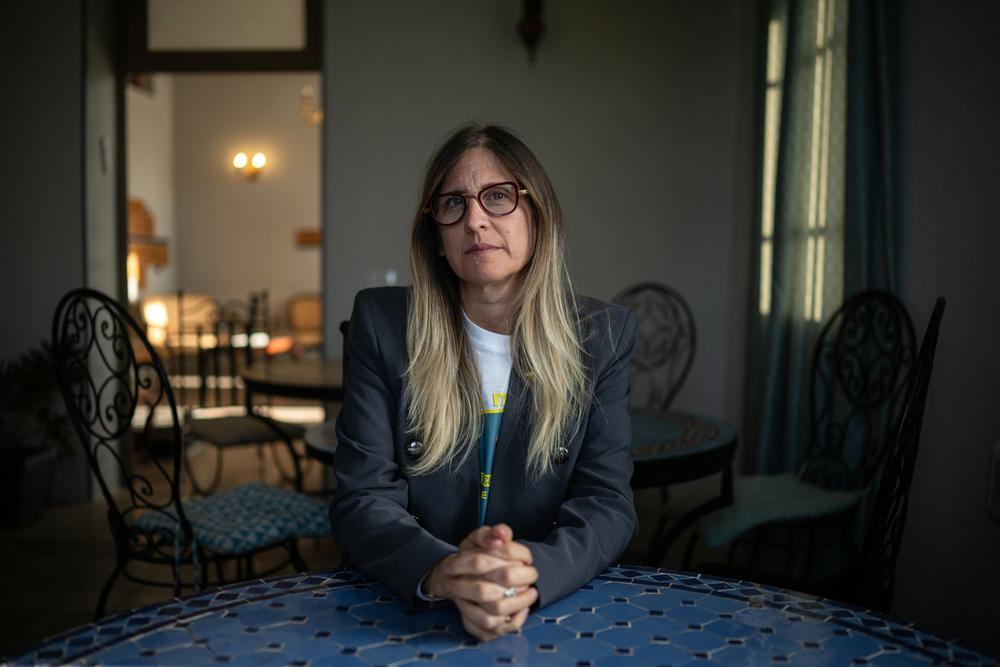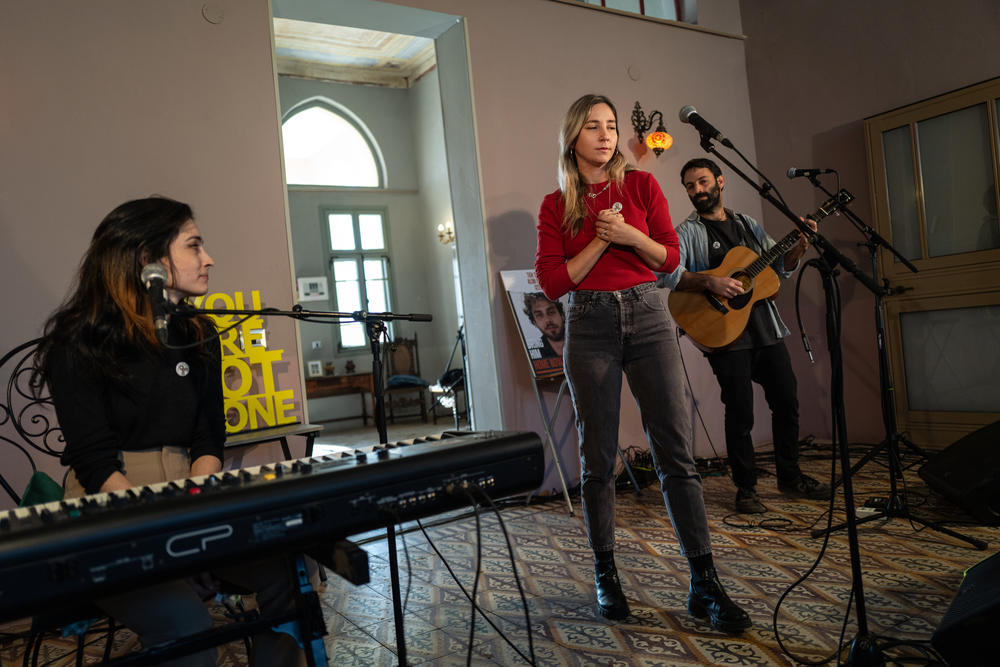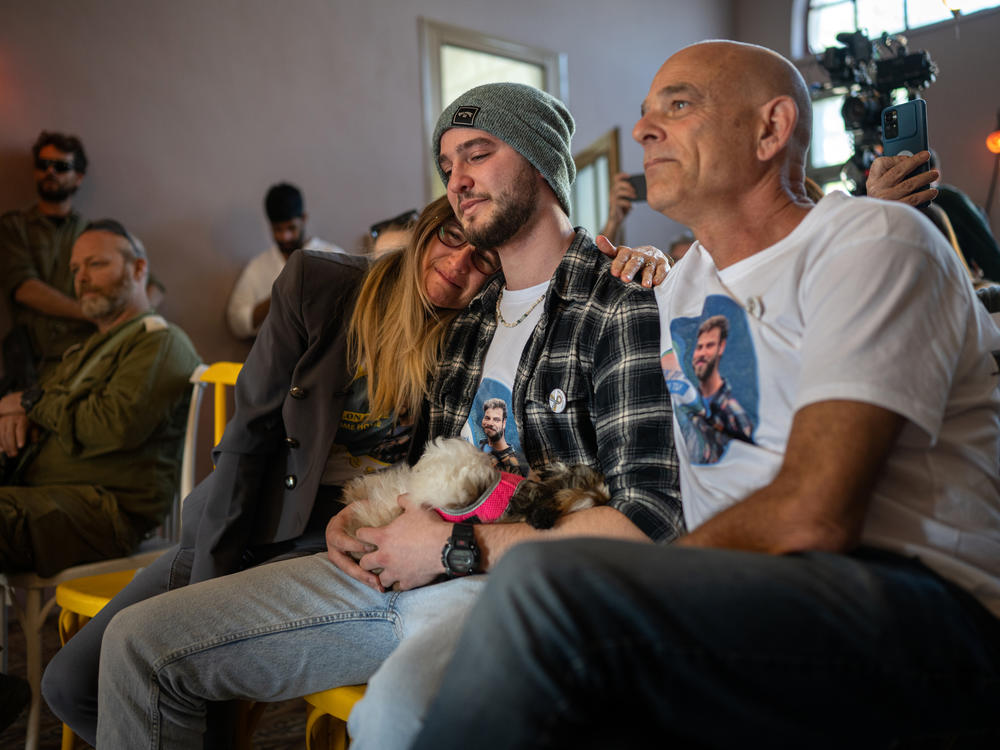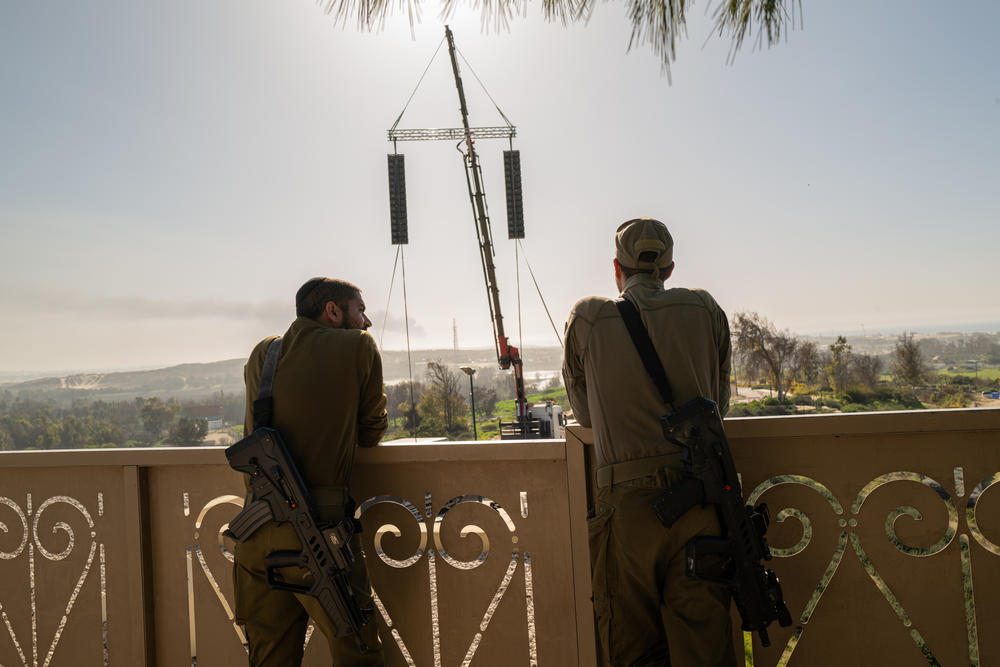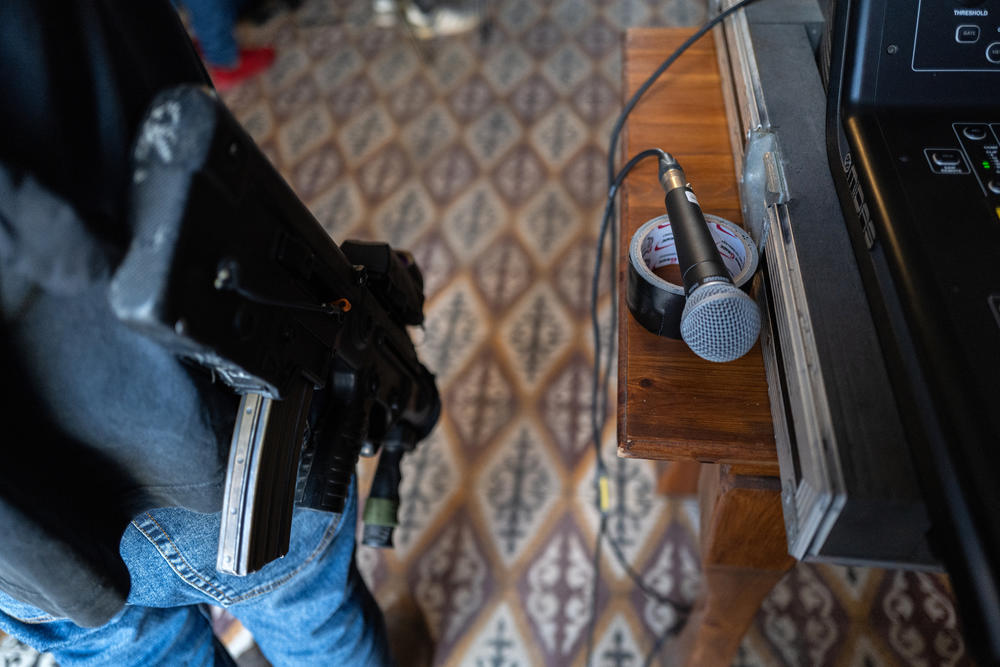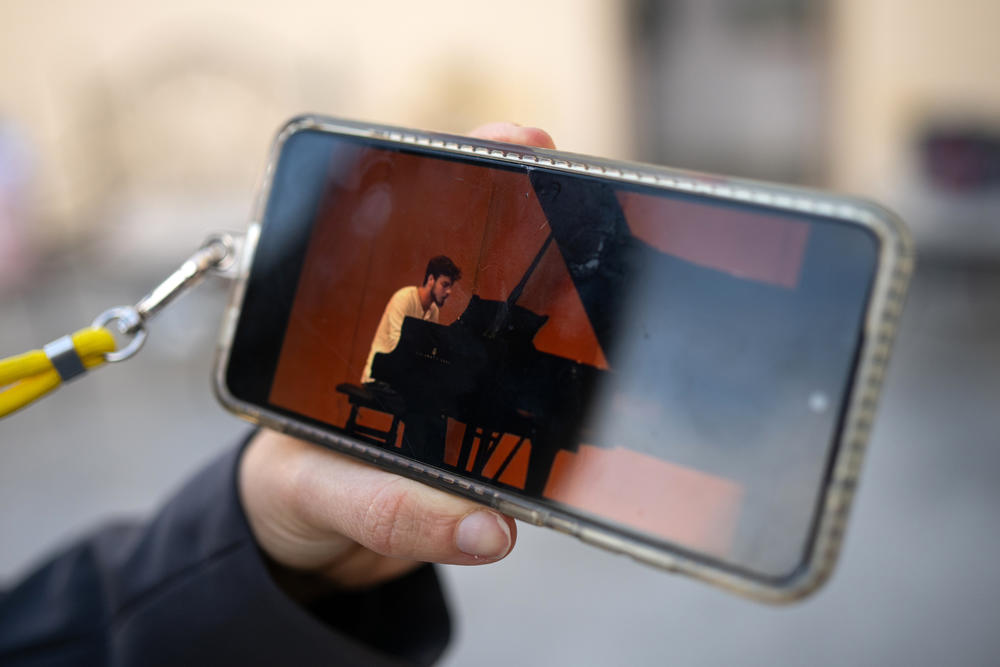Section Branding
Header Content
Her son was taken by Hamas. She threw him a concert in the hopes he could hear it
Primary Content
ZIKIM, Israel — Idit Ohel has not heard from her eldest son, Alon Ohel, in more than three months.
"I know that he's alive," she says. "I know that he's alive because he was taken alive, and I know that he's alive because I'm a mother."
22-year-old Alon was one of about 240 hostages seized by Hamas on Oct. 7 as part of its attack on Israel, which killed around 1,200 people, according to Israeli officials. He was taken in the early hours from the Nova music festival. Hamas militants killed hundreds at the festival.
Idit hasn't received any videos or messages from him since the attack.
The families of the more than 130 hostages Israel says are still being held fear time is running out.
"That's why we're doing this," she says, "because music says that we have to stop and we have to do something."
With negotiations for the hostages' release stalled and a major Israeli military campaign underway in Gaza, it can be a struggle to stay positive.
This is why Idit organized a concert for Alon.
"I have no control over Alon — what they're doing to him, when he's going to come back," she says. "I have control over the things I do. This I made — this I want."
Last fall, Alon was supposed to be starting at one of Israel's best music academies — the Rimon School of Music in Tel Aviv. Idit says he's a great piano player.
"Music is a big part of his life," she says. "He moves through music. He actually moves physically through music. You can see when he moves — it's like he's listening to music all the time."
The concert is being staged in a small community center in Zikim, a kibbutz near the Gaza Strip. Playing are some of Alon's favorite Israeli artists, including Guy Mazig. He's singing about someone trying to help their child.
"He's in big trouble, and you're in a great hurry and everything that comes along with this, the sadness and range of emotions," Mazig explains.
Alon's father is here, as well as his brother. Some soldiers also show up — they heard the music from their base near the border and came over to listen. That's because the music isn't just playing in the community center — outside, two strings of loudspeakers are suspended from a crane, pointed toward Gaza.
The sound of the music echoes over the hills, and in the distance, smoke rises from Israel's bombardment of Gaza City. Fighting has been especially intense in recent days. According to Gaza's Health Ministry, more than 26,000 Palestinians have been killed since Israel's military campaign began in October.
The concert wraps up, the truck with the speakers drives away and an Israeli fighter jet rumbles overhead.
Back inside, Idit Ohel says she believes her son was listening.
"I know he heard me, because I just know," she says. "Sometimes you don't have to hear music. It's not the hearing — it's the vibe, it's the energy."
And then she picks up her smartphone. She wants us to hear Alon play.
"Oh, you've got to see this," Idit says with pride in her voice. "This is Alon."
Copyright 2024 NPR. To see more, visit https://www.npr.org.
